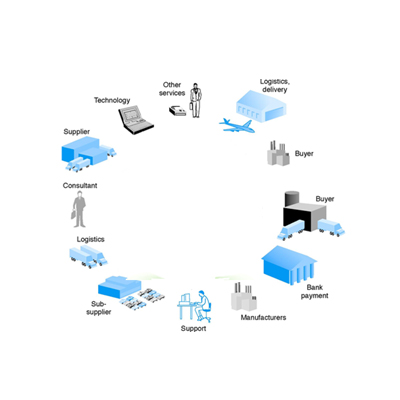6 Months Certificate Course in Logistics & Supply Chain Management
Case Study Workshops
Students will participate in a series of workshops to gain real life experiences in managing day-to-day operations of distribution centres. The key objective of these workshops will be to train the students in handling all aspects of warehousing, inventory management, billing, packaging, labelling, shipping, cash on delivery, payment, product return & exchange, and much more.
Students will be trained on use of specialist enterprise mobility software which takes care of most of the issues like tracking, management of stock levels, locations, packaging and fulfilment.
Logistics & SCM Fundamentals
Duration: 6 Months
Course Description:
The main aim of this course will be to provide students with a broad overview of logistics and supply chain management in a way that excites their interest in the subject and emphasizes their economic, social and environmental importance. The course will lay the conceptual and theoretical foundations of logistics and supply chain management and give the students a sense of the scale and diversity of logistics as both a business function and an industry. Furthermore, it will focus on what are generally regarded as the four key elements in a logistics system: transport, inventory, warehousing and information. The management challenges presented by each of these activities will be reviewed and students will be given a brief introduction to the analytical tools used to optimize them. Finally, the course addresses four 'cross-cutting' themes which should synthesis material introduced in the earlier parts and examine the wider impact of logistics / supply chain management on the economy, the environment and social well-being. It will conclude with a thought-provoking session discussing longer term forecasts of the development of logistics and supply chains.
Supply Chain Strategy
Duration: 6 Months
Course Description:
This course will enable the students to understand the relevance of supply chain management for firms in different industries. Specifically, the students learn to identify the right supply chain strategy along a product's life cycle, to apply strategic tools that can be used to match supply and demand, and to manage supply chains in times of crisis and identify strategies to deal with financial distress and volatility.
Logistics Operations
Duration: 6 Months
Course Description:
The goal of this course is to provide students with a solid understanding of the role and the importance of logistics operations in today's global organization. The goal of this course is to present a broad and practical overview of this field in a realistic and functioning manner and to understand how decisions impact the performance of a company and how warehousing adds value to a firms entire supply chain.
Sustainable Supply Chains
Duration: 6 Months
Course Description:
This course focuses specifically on humanitarian and closed-loop supply chains that are mainly driven by social and environmental aspects. Therefore, the focus of the course is mostly on the environmental and the social (rather than on the financial) aspects of sustainability of supply chains.
Intercultural Communication & Management
Duration: 6 Months
Course Description:
With an increasingly globalized economy, managing employees of different cultural backgrounds becomes an imperative in multi-national companies. This module takes the approach of understanding how cultures differ and impact on our interactions at the workplace.
Ethics
Duration: 6 Months
Course Description:
The course is an introduction to moral philosophy and aims at giving students the vocabulary and categories to look at life from an ethical perspective. The ultimate goal of the course is thus to help students refine and articulate their own moral viewpoint. Students are enabled to see that all human behaviour has moral aspects and are given the tools to analyze these aspects. Ethics is a special module in the respect that it must not attempt at forcing a certain ideology on students and just present different approaches to the topics.
Global Freight Logistics Management
Duration: 6 Months
Course Description:
In this course, students will learn how to present themselves and their work results with confidence and mastery. Topics such as verbal, non-verbal and media-assisted communication as well as rules of conduct will be focused on.






